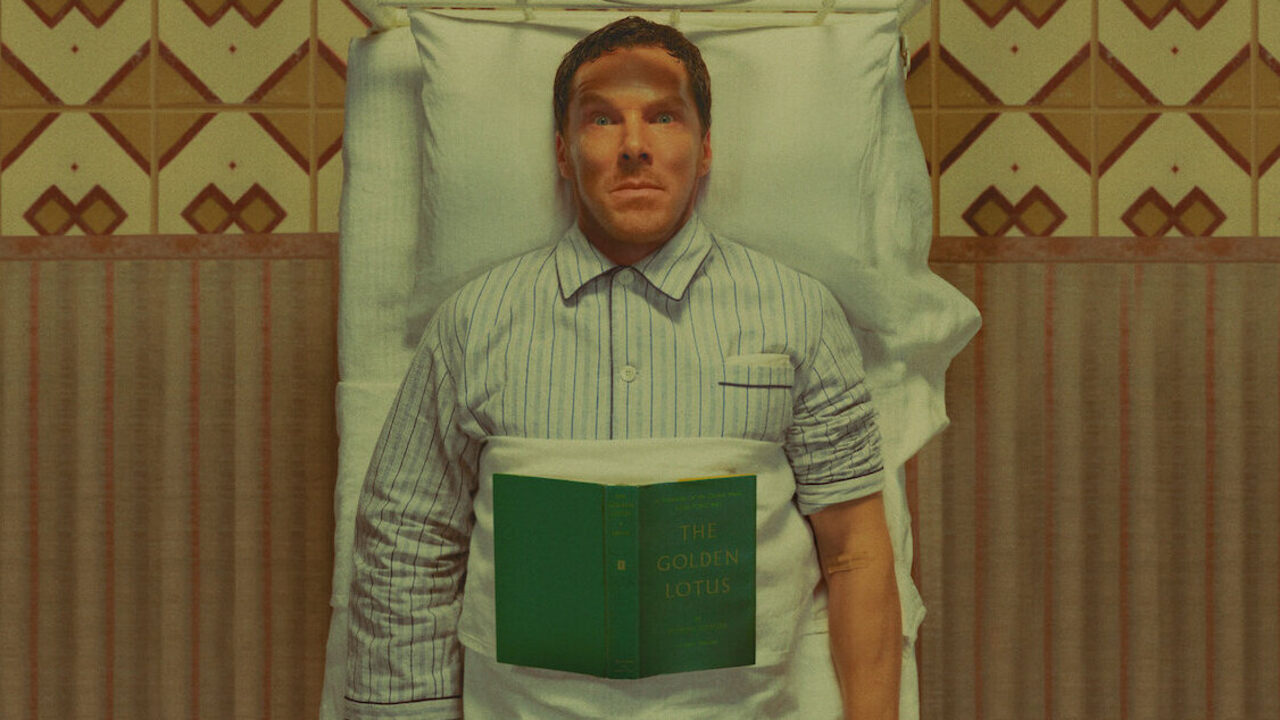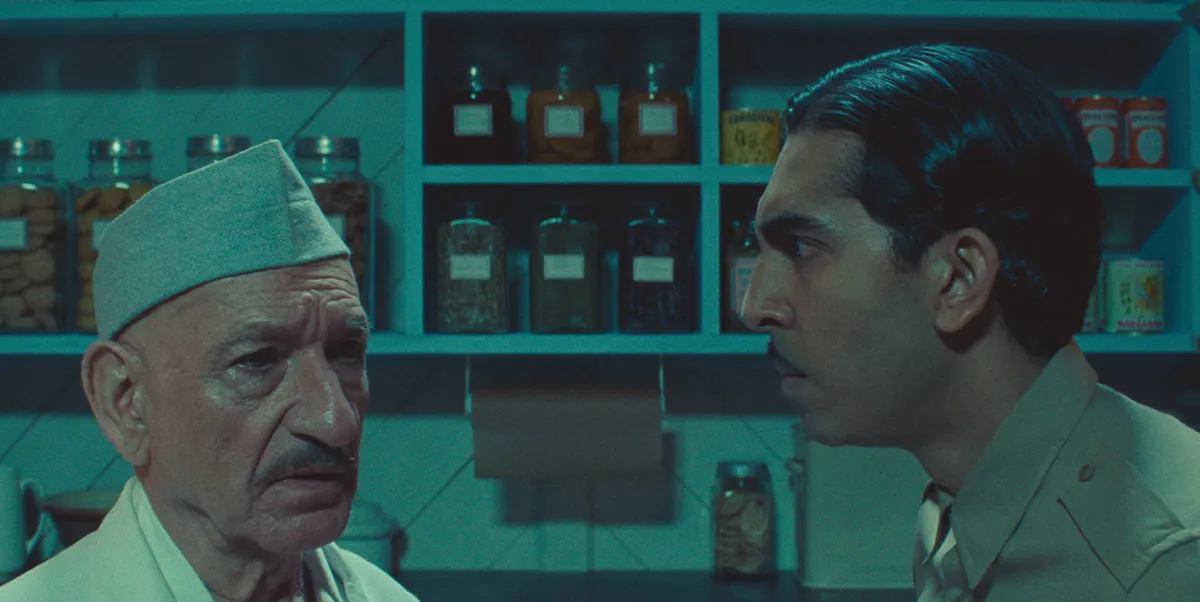Wes Anderson’s ‘Poison’ Is a Fun, Frantic Journey Until Its Lesson Strikes Back
5/5 Dev Patel and Ben Kingsley tag teams.

The final installment of Wes Anderson’s collaboration with the stories of Roald Dahl leaves us with a message that strikes and stings like the venomous bite of a snake. The first chapter, The Wonderful Story of Henry Sugar, seemed like a fable about greed, but surprisingly, Henry himself was very kind and generous. What is fascinating about Poison, the fourth and final story, is that when we meet Harry Pope (Benedict Cumberbatch), he seems almost unassuming.
A man lying in bed reading isn’t really frightening at the time, but any animal can be unassuming when they are lying down and at their weakest. Harry is trapped beneath what he thinks is a venomous snake called a krait. The snake’s venom will kill you and when Roald Dahl (Ralph Fiennes) shows up to explain it to us, he has a krait all his own. Our narrator, Mr. Woods (Dev Patel), is running around desperately trying to save Harry when he calls up Dr. Ganderbai (Ben Kingsley) to help him.
Their mission is to try to get the anti-venom into Harry before the snake bites him or (better yet) get Harry away from the snake altogether. Both Harry and Mr. Woods come up with a plan to try and get the snake to fall asleep. Poison is tense and anxiety-inducing, especially if you’re someone who doesn’t like snakes (even the Wes Anderson variety, which would probably be cute). What isn’t lovely or cute (like some of these shorts have been) is Harry Pope’s anger and racist reaction to Dr. Ganderbai’s joke when the snake isn’t there.
All fun and games until it suddenly isn’t

After everything is said and done, Dr. Ganderbai and Mr. Woods go out of their way to make sure that Harry Pope is alive and healthy. But Harry returns the favor by screaming racist remarks at Dr. Ganderbai, who dared to make a light-hearted joke when the snake wasn’t there at all. It’s a stark reminder of the venomous cruelty that exists within some, darting out and striking when you least expect it.
The short was entertaining, thanks to the tense, lively performances and the swift messaging in the end. While The Rat Catcher was all about man’s resistance to letting others live in their world and The Swan was abusing others for the fun of it, Poison really highlights how venomous man can be.
Wes Anderson’s take on Roald Dahl is always nuanced and meticulously directed, and he clearly had a lot of fun with these four short films. In less than the length of most feature-length movies, Anderson told us four beautiful fables about the world. Hopefully, there will be many more Anderson/Dahl adaptations in the future.
(featured image: Netflix)
Have a tip we should know? [email protected]
